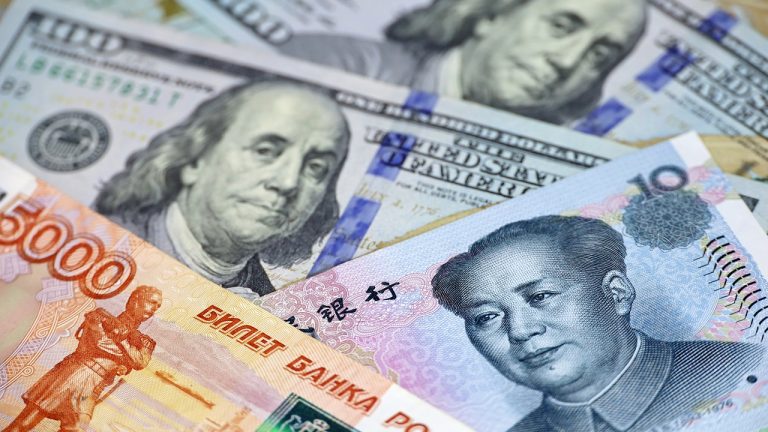
BRICS plans to discuss trade in national currencies at its summit but de-dollarization is not on the agenda, South Africa’s BRICS Sherpa stated. The talks in Johannesburg next week will also focus on the expansion of the bloc of emerging economies and the diplomat doesn’t see this as a challenge to any other organization.
De-Dollarization Not on BRICS Summit’s Agenda, According to South African Representative
Increasing trade in local currencies will be a subject of the talks between the member states of BRICS (Brazil, Russia, India, China, and South Africa) at their meeting in Johannesburg on Aug. 22–24, South Africa’s top diplomat in charge of relations with the organization, Anil Sooklal, told Bloomberg.
While the bloc will consider the establishment of a common payments system and is likely to form a technical committee to explore the issuing of a joint currency, it does not intend to discuss replacing the U.S. dollar as the world’s de facto global currency, he also said, and elaborated:
Trading in local currencies is firmly on the agenda. There is no agenda item of de-dollarization on the BRICS agenda. BRICS is not calling for de-dollarization. The dollar will continue to be a major global currency — that’s a reality.
BRICS has been looking to deepen trade in the national currencies of its members as part of efforts to increase its influence in the world as it already represents over 42% of the planet’s population and accounts for 23% of the global gross domestic product (GDP) and 18% of international trade.
The group’s New Development Bank (NDB) aims to bring the share of domestic currencies to a third of its lending in the next couple of years, the report noted. Last month, NDB’s Chief Financial Officer, Leslie Maasdorp, pointed out that creating a common currency to challenge the dollar is a medium- to long-term ambition for BRICS.
During the upcoming summit, however, BRICS will mainly focus on whether to induct more countries. Besides the leaders of the current five members, with Russian President Vladimir Putin joining via video link, the heads of state and government of 40 other nations have confirmed their attendance, a number that could rise even further, Sooklal said and added:
I think there is a general consensus that BRICS has to expand. We have worked out some rules of procedure and criteria.
An earlier report by Bloomberg in July revealed that China’s push for rapid enlargement of the bloc is facing opposition from India and Brazil. In early August, the Kremlin’s Press Secretary, Dmitry Peskov, admitted that “certain nuances exist among members on the subject of expansion.”
In his interview, Anil Sooklal also emphasized that BRICS is not in competition with any other grouping but aims to promote the interests of the developing world.
“There’s an unfortunate narrative being developed that BRICS is anti-West, that BRICS was created as competition to the G7 or the Global North,” Sooklal noted. “What we do seek is to advance the agenda of the Global South and to build a more inclusive, representative, just, fair global architecture,” the South African diplomat explained.
Do you think BRICS members will approve the organization’s expansion and eventually agree to issue a common currency? Tell us in the comments section below.
Comments
Post a Comment